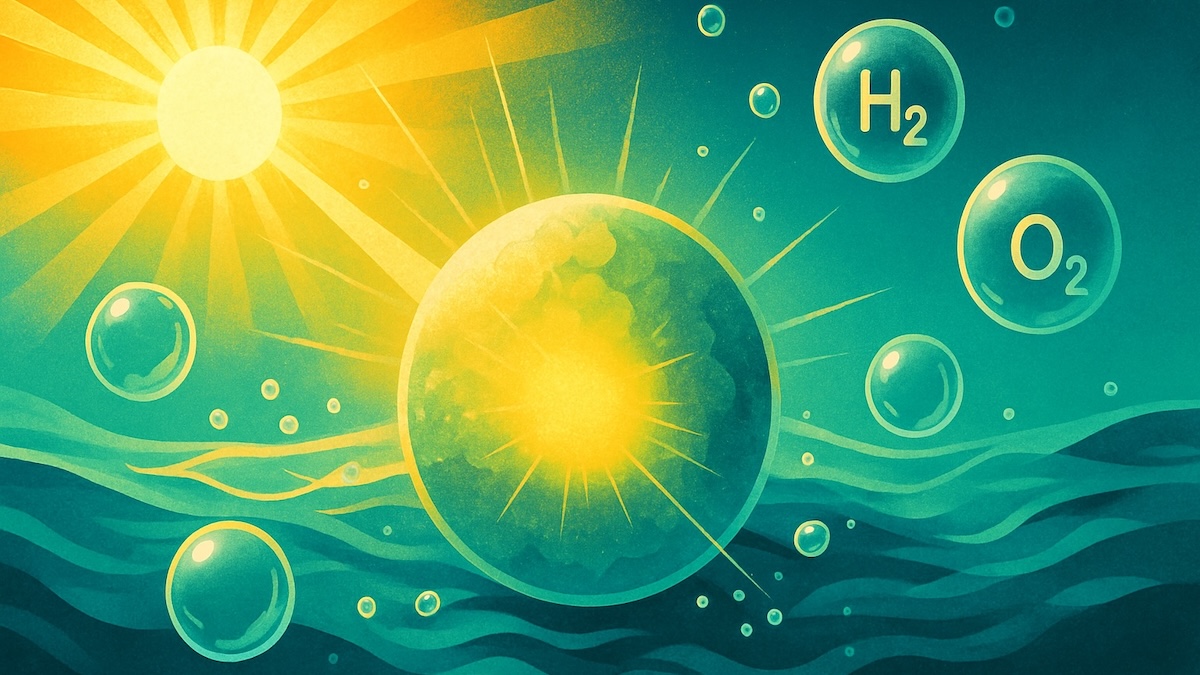The contribution researchers develop method to produce hydrogen without electricity first appeared at the online magazine Basic Thinking. You can start the day well every morning via our newsletter update.

As an energy source, hydrogen has great potential – provided that it is generated with renewable energy. Researchers from Jena are now even trying to produce green hydrogen without electricity using a new method.
Hydrogen is considered an energy source of the future – but only if it is produced climate -friendly. So far, this so -called green hydrogen has often been produced using electricity from renewable energies using electricity.
However, the required amounts of electricity are high and the procedure is therefore expensive. In addition, production is not always sustainable. Researchers at the Center for Energy and Environmental Chemistry (CEEC) in Jena therefore want to make production more efficient with a new method.
Hydrogen without electricity: Researchers from Jena develop a new method
The eleven -member team of researchers around the doctorate chemist Jacob Schneidewind tries as part of the Project “Two-photo water splitting for the implementation of coupled photocatalysis”, to produce hydrogen completely without electricity. Similar to photosynthesis in plants, photocatalysis is a process in which light energy drives chemical reactions.
First of all, sunlight meets a catalyst. For this purpose, the researchers give a special powder made of aluminum -dot strontiumitanate in water. This material absorbs light similar to solar cells-in the laboratory simulated by UV light.
The light energy obtained triggers an electrochemical reaction in the catalyst. Water molecules are split into hydrogen and oxygen. After a few minutes, gas bubbles form that are collected and separated. The hydrogen can then be used directly as an energy source.
So far, the researchers have achieved an efficiency of three to four percent. For comparison: modern solar cells create about 24 percent under optimal conditions. The team is therefore working on increasing efficiency and developing new, cheaper catalysts. Metal -free dyes are particularly promising.
Prototype with higher efficiency in planning
Another problem: The sunlight in Germany may not be enough to achieve a sensible efficiency. Together with the TU Hamburg, the researchers want to find out what the most sensible locations for photocatalysis are. South Spain, Greece and North Africa are currently under discussion.
In the next five years, Schneidewind and his team want to achieve an efficiency of six percent. Until then, your work is with the Federal Ministry of Education and Research 2.8 million euros Funded.
The photocatalysis is currently still taking place in the test tube. However, the scientists want to develop a new prototype: a plastic bag filled with the water-catalyst mixture that can be placed in the sun-but only if the object can be produced sustainably.
Basically, it will probably take some time before the method is ready for use on a large scale. “The plants have a lead of about three billion years in photosynthesis,” says the CEEC. It was so long that simple unicorns began to solve their energy problems with this elegant way. “The subtleties of this process must now be decrypted further to create an efficient source of energy.”
Also interesting:
- Energy for 170,000 years? Gigantic hydrogen occurrence proven
- Solar thermal system with plastic levels: heat energy for industry
- Light trick: carbon nanoral tubes reinforce solar energy
- Ranking: These are the most sustainable universities in Germany
The contribution researchers develop method to make hydrogen without electricity first appeared on basic thinking. Follow us too Google News and Flipboard Or subscribe to our update newsletter.
As a Tech Industry expert, I am excited about the development of a method to produce hydrogen without electricity. This breakthrough has the potential to revolutionize the way we generate hydrogen, which is a clean and sustainable fuel source. By using simple chemical reactions instead of electricity, this new method could make hydrogen production more cost-effective and environmentally friendly.
This innovation could have significant implications for a wide range of industries, including transportation, energy storage, and manufacturing. Hydrogen has long been touted as a clean alternative to fossil fuels, but the high cost and energy-intensive production methods have hindered its widespread adoption. With this new method, we could see a rapid acceleration in the use of hydrogen as a clean energy source.
I am eager to see how this technology develops and how it could be scaled up for commercial use. It is exciting to see researchers pushing the boundaries of what is possible in the field of clean energy, and I believe that this new method could play a key role in transitioning to a more sustainable and environmentally friendly future.
Credits